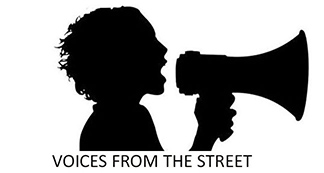Centre for Addiction and Mental Health
Partnering with CAMH, George Brown College’s Centre for Preparatory & Liberal Studies Program delivered another spectacular mental health conference which left attendees with plenty of information on which to reflect in order to offer more appropriate care to clients.
The 12th annual conference’s theme was, “Cultural Diversity and Mental Health.” Dr. Kwame McKenzie, CAMH senior scientist within the Social Equity and Health Research section, energetically delivered a keynote address filled with facts and figures about how the social determinants of health are affected by our cultural communities, ethnic and racial background, sexuality, age, and gender identity. Dr. McKenzie demonstrated how access to mental health services are affected by diversity factors by highlighting research done in Canada and abroad, and by sharing insights he has gained through his practice as a transcultural psychiatrist.
Two panel presentations brought together frontline clinicians, some with lived experience as mental health consumers, to discuss how our mental health is shaped by our cultural identities and its intersections with historical, socio-political and economic realities.
Representatives from CAMH partner agencies — Dawnmarie Harriott of Toronto At Home/Chez Soi, Dr. Clare Pain from Canadian Centre for Victims of Torture, and Bonnie Wong from Hong Fook Mental Health Association– outlined the innovative practices in mental health promotion that work for their diverse communities in the morning panel session. The audience was captivated by Dawnmarie’s frank discussion of her experiences as a client facing countless barriers and systemic inequities and now as a service provider trying to break down those barriers for her clients.
Between sessions, a performance by arts group Elevated Grounds enlivened the proceedings. Elevated Grounds strives to bring attention to mental illness to youth through dramatizations and music, and their compelling performance riveted the crowd. The performers used theatre to illustrate the mental health and addiction issues that young people from ethnoracial and ethnocultural groups face and how they must navigate them without adequate and culturally-appropriate supports.
The afternoon panel spoke of culturally-informed and transcultural practices to meet individual needs and featured speakers from Across Boundaries (Aseefa Sarang), Punjabi Community Health Centre (Baldev Mutta), as well as CAMH manager of Aboriginal Services Jeff DHondt.
 |
Jeff’s presentation, “Aboriginal Healing Frameworks and Narratives,” examined the various therapeutic approaches, stressing that each client is different and requires an individualized care plan that may require elements of several types of therapy. He spoke of using story telling to treat intergenerational trauma and instill trust while “linking the past and present to uncover contextual ways of explaining the world.”
Jeff outlined the challenges of using story telling: “What kinds of stories are told when practitioners are asked to track visits, client goals, outcomes, and progress according to standards created outside the Aboriginal community? What kinds of stories are told when prevention, culture and/or social determinants of health are treated as special outcomes, rather than integrated fully into the entire healthcare system?”
The conference programming offered culturally informed and transcultural mental health approaches and practices and outlined policy implications, service provisions and competency gaps affecting culturally diverse populations.
Jeff DHondt summed up the day, “The conference was a great reminder of how important the social determinants of health are to mental health, particularly to people who may not have meaningful access to these resources. The participants embraced challenges to Western biomedical conceptualizations of mental health, moving from defining mental health as an absence of disease, to meaningful access to resources as varied as housing, culturally appropriate treatment, education, primary care, love, family, community, respect and so on.”
Credit: CAMH Center of Addiction and Mental Health

